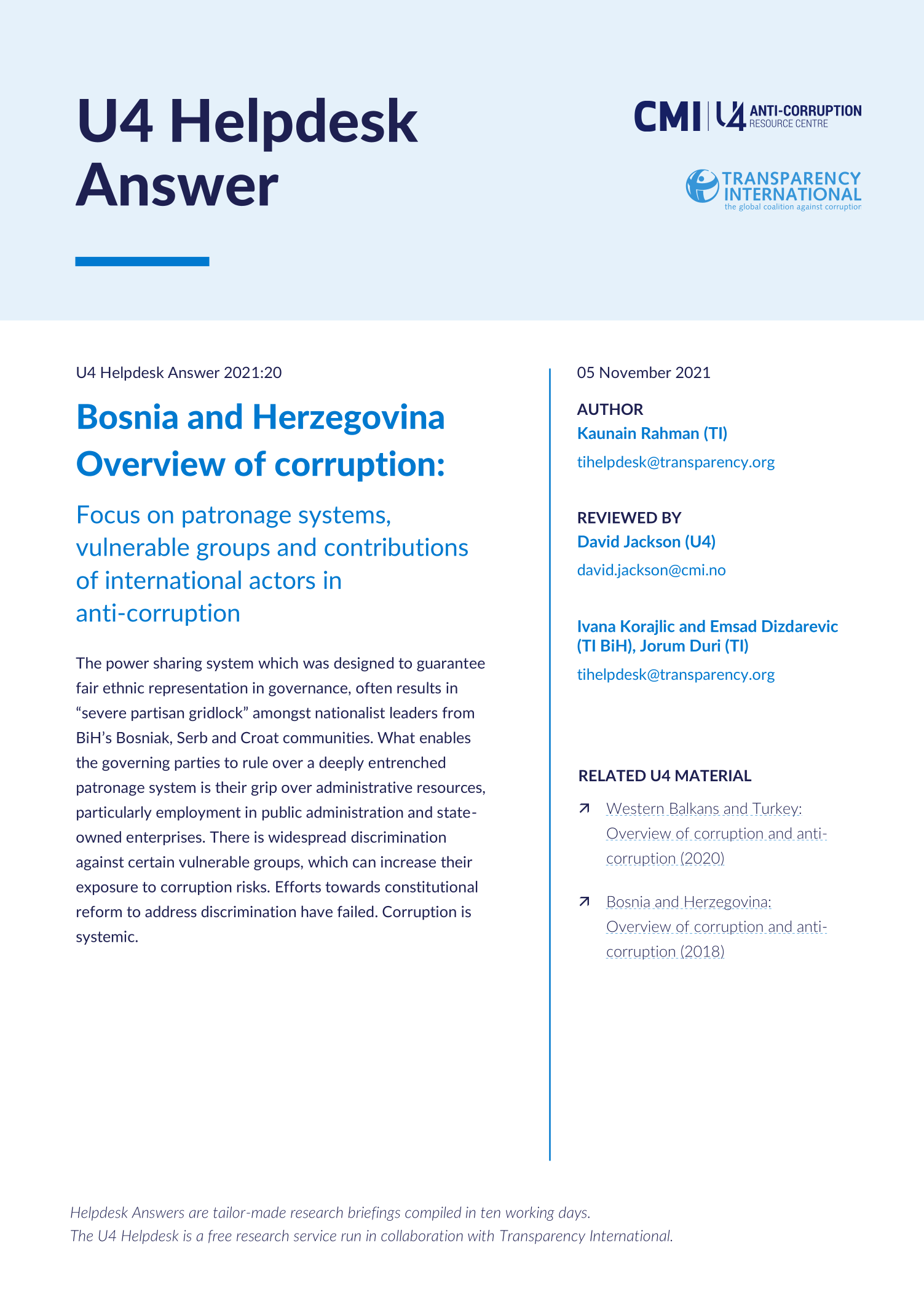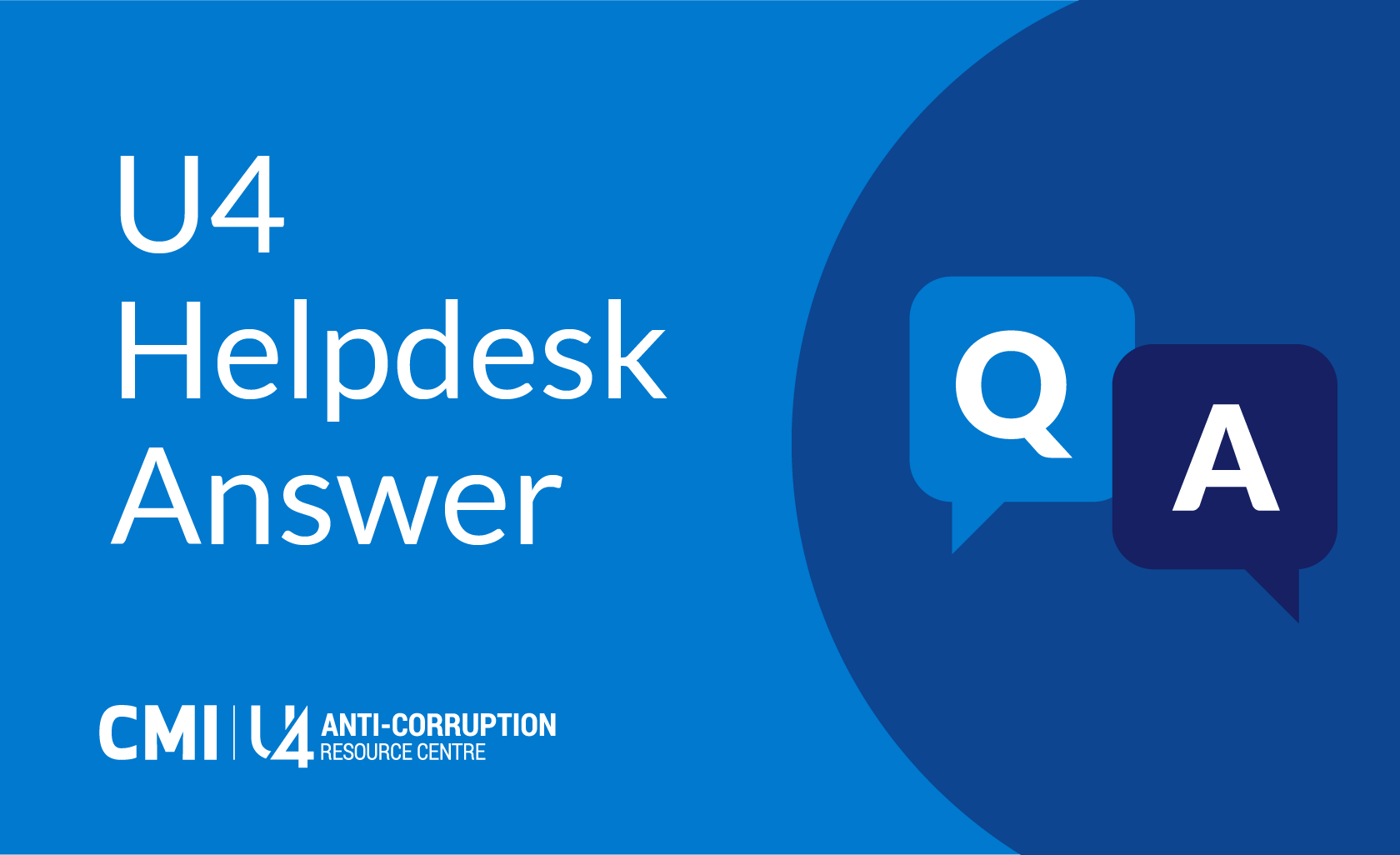Main points
- Corruption remains systemic in the BiH context.
- Patronage systems involve various forms of corruption including but not limited to petty, political and grand corruption.
- Elite actors benefit from the status quo and have “little incentive to reform the system”.
- The most vulnerable groups susceptible to social exclusion and poverty in BiH include returnees and internally displaced people (IDPs), persons living in distant rural areas, Roma, youth, women, victims of gender-based violence, elderly, those living with HIV/AIDS and tuberculosis, and people with disabilities.
- International actors have myriad anti-corruption projects ongoing in BiH.


